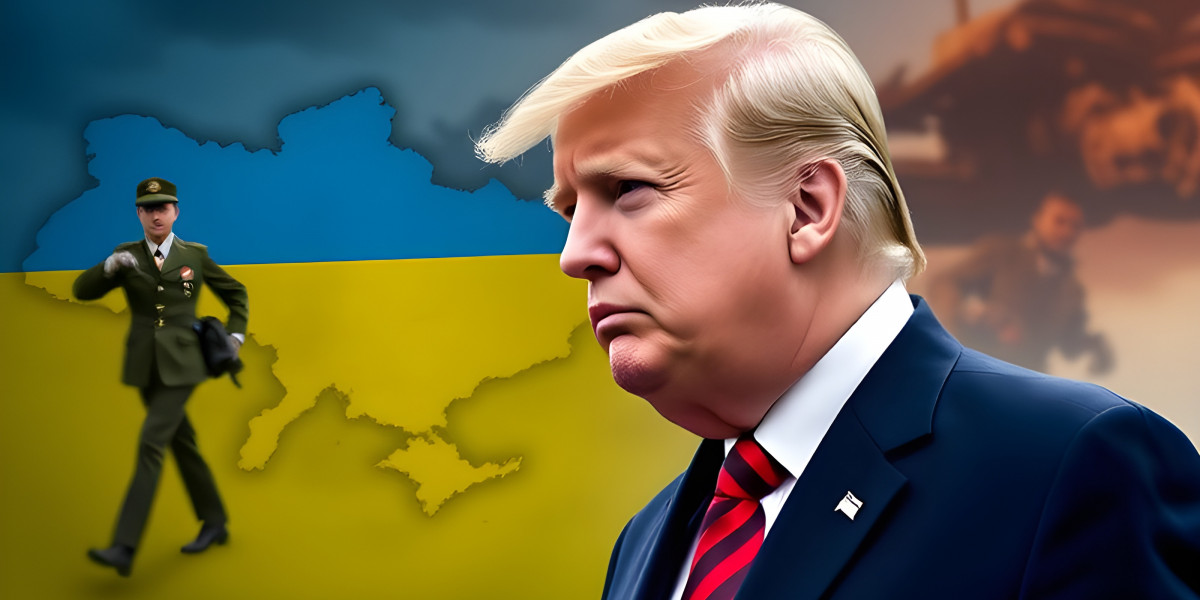The Unlikely Peace: How Trump’s Approach Could Have Stopped the Ukraine War
Introduction
The ongoing conflict in Ukraine, which began with Russia's annexation of Crimea in 2014 and escalated dramatically in February 2022 with a full-scale invasion, has had devastating consequences for Ukraine and significant geopolitical ramifications worldwide. However, the notion that the conflict could have been curtailed by a different approach from the United States, particularly during Donald Trump’s presidency, invites considerable speculation and discussion.
I. The Roots of the Ukraine Conflict
To understand how Trump’s policies could have potentially influenced the Ukraine war, it is essential to first grasp the roots of the conflict.
Post-Soviet Dynamics: Following the collapse of the Soviet Union, Ukraine found itself navigating a complex relationship with Russia. The struggle for independence and sovereignty became complicated by internal divisions between pro-European and pro-Russian factions.
Annexation of Crimea: In 2014, Russia annexed Crimea, citing the need to protect ethnic Russians and Russian speakers in the region. This act was widely condemned internationally and led to sanctions against Russia but also marked the beginning of an ongoing military conflict in Eastern Ukraine.
Escalation in 2022: Tensions escalated with the buildup of Russian troops along the Ukrainian border in late 2021, culminating in a full-scale invasion in February 2022. The invasion has led to widespread destruction, a humanitarian crisis, and a significant shift in global geopolitical alliances.
II. Trump’s Foreign Policy Approach
Donald Trump’s presidency was marked by an unconventional approach to foreign policy, characterized by his transactional style and a focus on "America First." His interactions with Russia were particularly notable.
Personal Relationship with Putin: Trump’s admiration for Russian President Vladimir Putin and his reluctance to criticize him drew criticism from both sides of the political aisle. His belief in engaging with adversaries rather than isolating them suggested a different strategy toward managing U.S.-Russia relations.
Military Aid to Ukraine: While Trump did authorize military aid to Ukraine, it was often accompanied by controversy. The pressure he placed on Ukraine to investigate his political rival, Joe Biden, overshadowed his administration’s support for Ukraine’s sovereignty.
Withdrawal from International Agreements: Trump’s withdrawal from various international agreements, including the Iran nuclear deal and the Paris Agreement, raised questions about America’s commitment to multilateral diplomacy. This unilateral approach could have contributed to perceptions of U.S. unpredictability among allies.
III. The Potential for Peace: What If Trump Had Taken Different Actions?
Imagining a scenario where Trump’s approach to the Ukraine conflict was more proactive in preventing war requires examining various factors.
Strengthened Diplomatic Relations: If Trump had focused on building stronger diplomatic relationships not only with Russia but also with European allies, he might have facilitated negotiations that could have deterred aggression. A more coordinated approach with NATO allies to present a united front could have influenced Russia’s calculations.
Clear Stance Against Aggression: A decisive stance against Russia’s actions in Crimea and Eastern Ukraine earlier on might have sent a clearer message regarding U.S. commitment to defending its allies. Trump’s inconsistency on foreign policy could have been a deterrent to Russian aggression had he taken a firmer position.
Leveraging Economic Sanctions: Trump could have utilized economic sanctions more aggressively as a tool to deter Russian actions. In his first term, he did impose sanctions on certain Russian individuals and entities; however, a broader and more coordinated sanctions strategy, coupled with diplomatic pressure, might have made Russia reconsider its aggressive posturing.
Engagement with Ukraine: A more robust engagement with Ukraine, emphasizing support for its sovereignty and territorial integrity, could have fortified the country’s defenses before the invasion. Increased military aid and intelligence sharing could have been part of this strategy.
IV. The Influence of Trump’s Administration on NATO and European Alliances
Trump’s rhetoric and policies had significant implications for NATO and the European Union, which played crucial roles in the response to the Ukraine crisis.
Criticism of NATO: Trump’s public criticism of NATO allies for not meeting defense spending commitments created tension within the alliance. A united NATO response is vital in deterring aggression from adversaries like Russia. Had Trump fostered a more cooperative relationship, NATO might have been more effective in addressing the threat from Russia.
European Defense Initiatives: Trump’s skepticism toward European defense initiatives could have weakened Europe’s ability to respond to threats. A collaborative approach could have allowed for more robust European defense mechanisms, which would be crucial in deterring Russian expansionism.
V. The Role of Media and Public Perception
Trump’s relationship with the media and the public's perception of foreign policy also played a significant role in how his administration’s actions were viewed.
Media Coverage of Foreign Policy: During Trump’s presidency, foreign policy decisions were often overshadowed by domestic controversies and scandals. This distraction may have limited public pressure on the administration to take a firmer stance on Russia and Ukraine.
Populism and Nationalism: The rise of populism during Trump’s tenure created an environment where traditional foreign policy norms were challenged. This shift could have influenced public support for a more aggressive stance against Russia, had Trump articulated a clearer rationale for defending Ukraine.
VI. The Long-Term Implications of Trump’s Policies
While it is impossible to predict precisely how different actions by Trump could have changed the course of the Ukraine conflict, the long-term implications of his approach remain significant.
Shifts in Global Alliances: The Ukraine war has accelerated shifts in global alliances, pushing countries like Finland and Sweden to seek NATO membership. The U.S. role in shaping these alliances will be critical in the post-war landscape.
International Norms and Aggression: The conflict has raised questions about the effectiveness of international norms against aggression. Trump’s approach could have either reinforced or undermined these norms, depending on the actions taken.
Future U.S. Foreign Policy: The lessons learned from the Ukraine conflict will shape future U.S. foreign policy strategies. A more collaborative, multilateral approach may emerge as leaders recognize the need to address global challenges collectively.
VII. Conclusion
The conflict in Ukraine has been one of the most significant geopolitical crises of the 21st century, with far-reaching implications for international relations. While it is speculative to suggest that Donald Trump could have outright stopped the war, a different approach from his administration could have influenced the trajectory of U.S.-Russia relations and the response to Russian aggression.
Ultimately, the lessons learned from the Ukraine crisis highlight the importance of coherent, proactive foreign policy that prioritizes diplomacy, alliance-building, and a clear stance against aggression. As the world continues to navigate the complexities of global politics, the challenge will be to find effective strategies to prevent future conflicts and promote stability in regions at risk.
The desire for peace in Ukraine remains, and understanding how various approaches could have led to different outcomes is essential in shaping future U.S. foreign policy and maintaining global stability.








